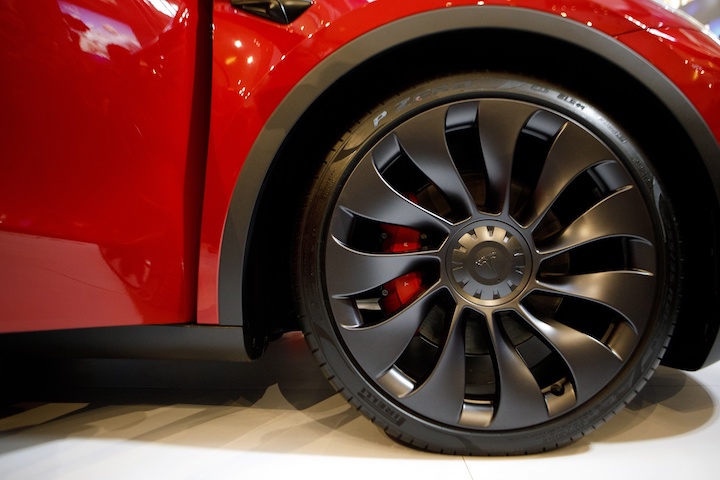India’s industry secretary said the ball is now in Tesla Inc.’s court to lay down its investment plans for the South Asian nation after the government cut import duty on electric vehicles.
The industry department last month released a comprehensive policy for boosting EV manufacturing in the world’s most-populous nation. Following that move, it’s up to Elon Musk’s carmaker to “make the announcements of their manufacturing plans,” Rajesh Kumar Singh, secretary of department for promotion of industry and internal trade, told Bloomberg in an interview on Thursday.
“We will help them out in terms of giving them the contacts at state level,” Singh said. “There have been contacts made at that level with state governments and the central government. VinFast has already announced and we expect a few others.”

Vietnamese automaker VinFast recently broke ground on an EV manufacturing facility in India’s southern state of Tamil Nadu.
Tesla is planning to send a team of people to scout for locations in India this month for a proposed $2 billion to $3 billion electric car plant, the Financial Times reported earlier this week, citing people familiar with the matter that it didn’t identify. Tesla would also look to increase purchases of auto parts from the nation to as much as $15 billion, Bloomberg reported in November.
Musk’s carmaker has for years been been making a case for cutting import taxes before it commits to any significant investment in one of the world’s biggest automobile markets.
To get tax concessions, companies will have to invest at least 41.5 billion rupees ($500 million) and start producing EVs from a local plant within three years, India’s government said in March.
Singh said on Thursday that the policy should help spur growth of EVs in the country.
“We expect it to lead to a penetration of four-wheeler electric vehicles to at least 10% by 2030,” he said. “My view is that if we have these manufacturing units up and running, along with the battery infrastructure that is now going up, it should be closer to 15% by 2030, after which it will just snowball.”
According to BloombergNEF estimates, some 96,000 passenger EVs were sold in India in 2023, nearly double a year earlier, and that could climb by another 40% in 2024.
India’s electric passenger vehicle market however has to date largely been driven by electric scooters, which are much cheaper. India also doesn’t have very good EV charging infrastructure and the EVs that are on offer are mainly expensive.




